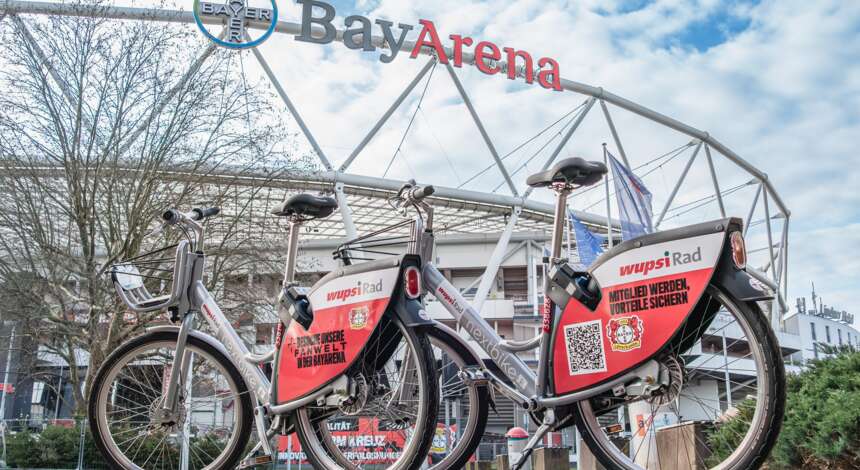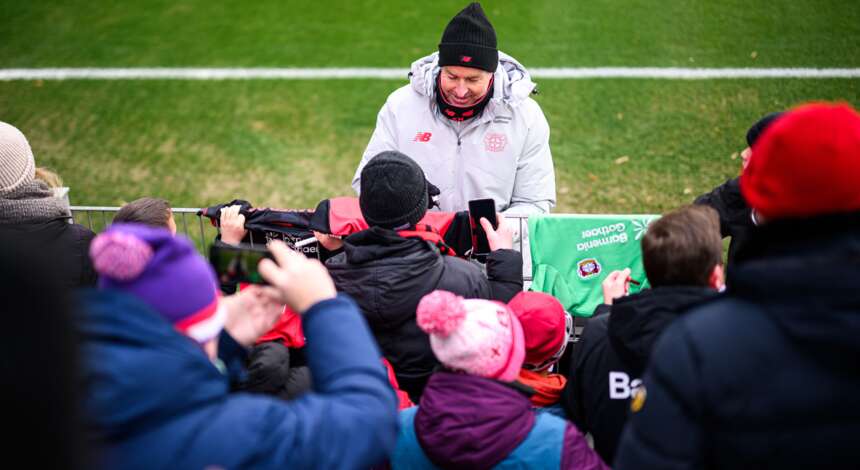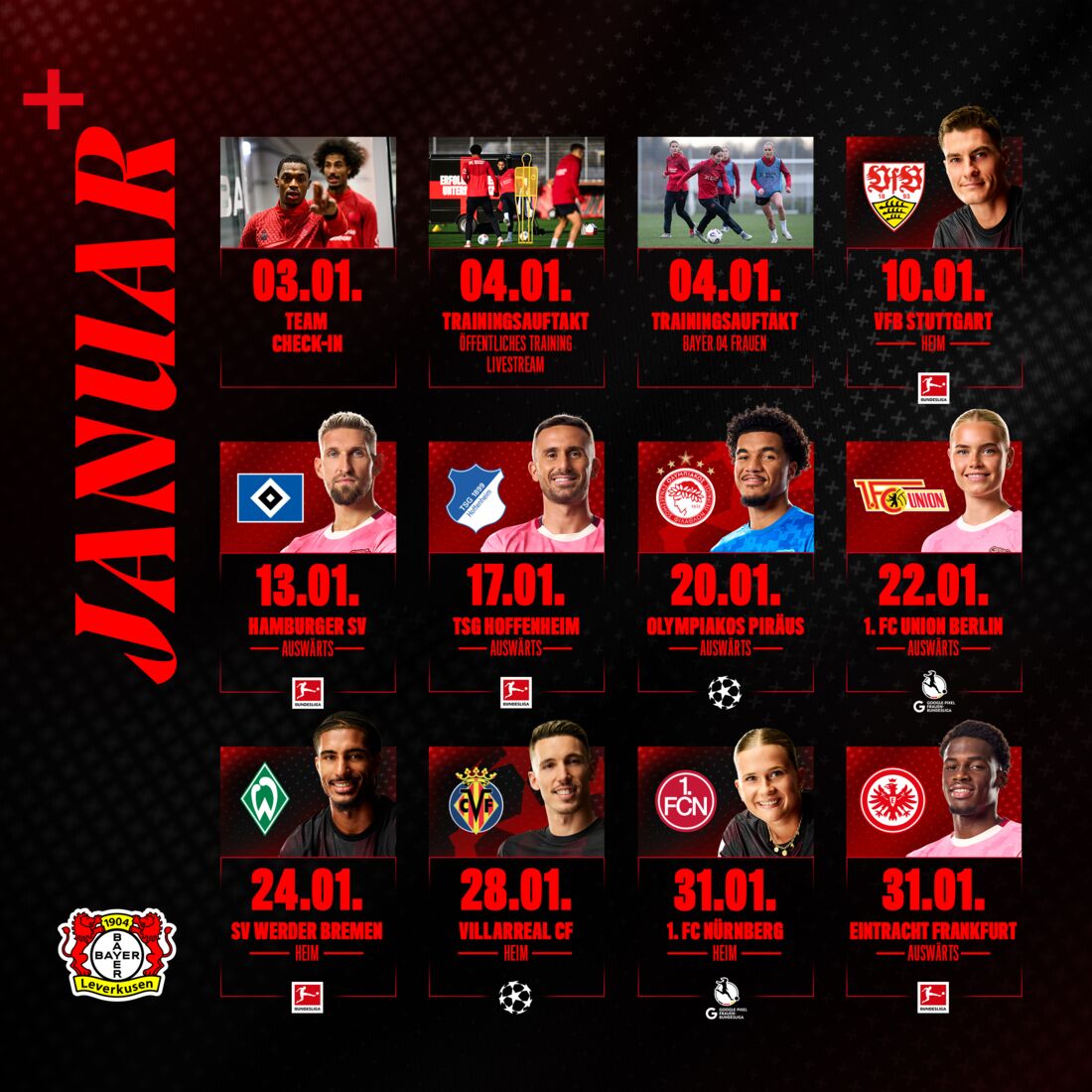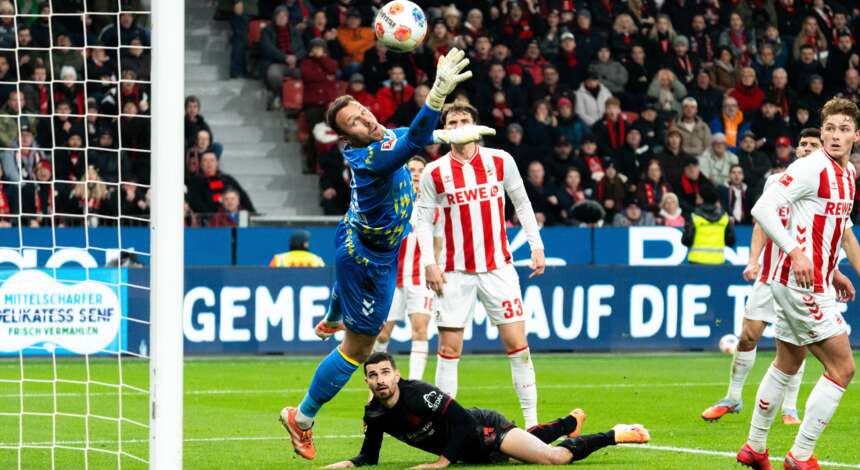
Bar charts are rarely exciting – particularly not for football fans. In contrast, Karl-Heinrich Dittmar shows great satisfaction when he looks up the latest statistics for the Champions League clubs. "On the left, the shortest red bar, that is Bayer 04," said the specialist. In this case, short means good. Indeed, very good. The best place. On the right, the longer bars belong to teams like Real Madrid, Paris St Germain, Juventus and Bayern Munich. The statistics show how often players have been sidelined for clubs in the league and the Champions League over the past three months.
Healthy players, who don't get sick or who can return as soon as possible after injury to be available for coach Peter Bosz – that's the target for the medical section at Bayer 04 that Dittmar has led since 2009. He has held the post as director since July. The great value placed on the department has an historical reason. "As a pharmaceutical company, Bayer has always placed special value on the subject of health," said the 56-year-old in an interview with the Werkself Magazine club journal. "Even before the footballers, there was elite sport at Leverkusen in basketball, handball and volleyball plus boxing and athletics. Accordingly, Bayer 04 was involved in medical care for elite athletes early on."
In order to be able to work with the players in a detailed and targeted fashion, Dittmar set up the Werkstatt in 2009, the innovative centre on the third floor at the BayArena focused on prevention, regeneration and rehabilitation. A key feature: Dittmar not only has outstanding technical equipment – from special fitness equipment through to cold chambers – available but also has top people in all specialist areas from across the country. "In the past, our players used to go to Munich for operations and to Donaustauf for rehab. Nobody does that any more. We've brought top people to Leverkusen so we can offer a complete medical service at the Werkstatt that also brings other players to us," explained Dittmar who is head of a 35-person team. Masseurs and physiotherapists work in the Werkstatt, as do orthopaedic and rehab specialists, experts in managing training, athletics and sports science plus psychologists who deal with problems on a personal level.

What expert knowledge do you provide for Peter Bosz, Mr Dittmar?
Dittmar: We observe the players and their movements in every training session and every game. If we identify any perceptible problems then we advise the coach that it would be sensible to take the player off to avoid a serious injury. Or in training, we offer advice on how much a player can do, for example after an operation or an injury.
How are you able to anticipate a potential injury?
Dittmar: The basis is provided by diagnostics. We examine the whole body of a player, for example with particular muscle structures or running style, we measure the mechanical axis, and look at how a player performs with his feet. From all that data, we can predict, for example, that a running style can lead to cartilage damage over the long term. So here we can take preventative action to avoid that damage arising. That could be done via inserts or a change in movement. Equally we can see in a game if a player is running differently from normal as that could indicate a possible strain. If it goes too far we can take the player off to avoid serious injury. For example, in the game against Atletico Madrid at the BayArena, we saw early on that Wendell had a problem. He was substituted at half-time. That enables us to prevent possible long periods on the sidelines. He was able to play against Wolfsburg four days later. That is successful prevention.
Can you and your colleagues also improve a player's performance levels?
Dittmar: Let's take the sense of balance. That's very important because the player has to have core strength to be able to pass and shoot. If we identify weaknesses then we can target training at the sense of balance and the associated muscle structure.
What's your daily routine?
Dittmar: I spend the mornings at my group practice in Quettingen? My working day begins at 7 o'clock. And I get to the Werkstatt at the BayArena around midday. Then I look after my team, the players and I get in contact with the coaching staff.
What are those meetings about?
Dittmar: The workload of the team and the players is an important subject. If we have a Champions League or DFB Cup game in the week then we can't risk peak workloads in training otherwise that could lead to injuries. It has to be about the players recovering. It's equally important the players returning from rehab are not exposed to too great a workload too quickly. We want to provide the coach with as many players as quickly as possible. But not at any price. For example, a damaged tendon needs a year before it's fully healed. Nevertheless, players are back on the pitch six weeks later. The decision is often on a knife's edge. We have to be very exact in controlling the workload.
That doesn't sound like a part-time job.
Dittmar: You have to be fully committed. I rarely get home before 8 o'clock in the evening.
Then your wife must be a Bayer 04 fan as well ...
Dittmar: Yes, she is. She has a season ticket and, earlier on when I sat with her in the stands and not on the bench, she gave the team more vocal support than I did. And one of my sons regularly attends matches and he goes in the home end.
As you are born in Leverkusen, Bayer 04 could well be in your blood...
Dittmar: Yes, I was born in the community hospital in Schlebusch and I went to the Lise Meitner and Landrat Lucas grammar schools. I studied medicine in Cologne and graduated in Düsseldorf. And I did my elective at the community hospital. I actually wanted to go out into the big wide world and definitely the USA.
What were your first experiences with the Werkself?
Dittmar: I used to go to the Ulrich Haberland Stadium when we are in the fifth tier and then came the time in the second division in the 1970s. I was at the ground for the legendary promotion game in May 1979 against Uerdingen when we gained promotion to the Bundesliga with a 3-3 draw. And then came the sensational victory in the UEFA Cup in 1988 where I was with the fans. It was a dream come true. Just like the dream becoming reality when I was taken on as club doctor.
Axel Mörer
Related News

Bayer 04 and transport provider wupsi expand long-standing partnership
The long-standing successful collaboration between Bayer 04 and the transport service provider wupsi GmbH has been expanded: From January 2026, 100 wupsi bikes with Bayer 04 branding will be available for hire throughout the city of Leverkusen. They will complement the many existing offers and services that provide key support, especially for fans travelling to and from home matches at the BayArena.
Show more
Successful start to 2026 training – Hjulmand: 'Nice to see all the fans again'
The Werkself are back! Following the two-week winter break, head coach Kasper Hjulmand's team began the new year with an open session on Sunday. After Robert Andrich and his teammates arrived in Leverkusen yesterday for the official check-in, they got back down to business a day later in front of around 1,200 fans at the Ulrich Haberland Stadion. The report from the Werkself's first session of 2026.
Show more
Bayer 04’s new year schedule: Open training session on 4 January
After a two-week winter break, the Werkself resume training on Sunday, 4 January. The first session in 2026 at the Ulrich Haberland Stadium starts at 11:00 and is open to fans. Bayer 04 look forward to welcoming supporters at the start of 2026. The Werkself schedule for the new year.
Show more
December Goal of the Month: Vote now for Martin Terrier!
After being nominated for the Bundesliga Goal of the Year 2025, Martin Terrier's wonderful strike for the opener against FC Köln is now also up for selection for the ARD Sportschau Goal of the Month award for December 2025. Bayer 04 fans have until 19:00 CET on 10 January to vote for the French forward.
Show more